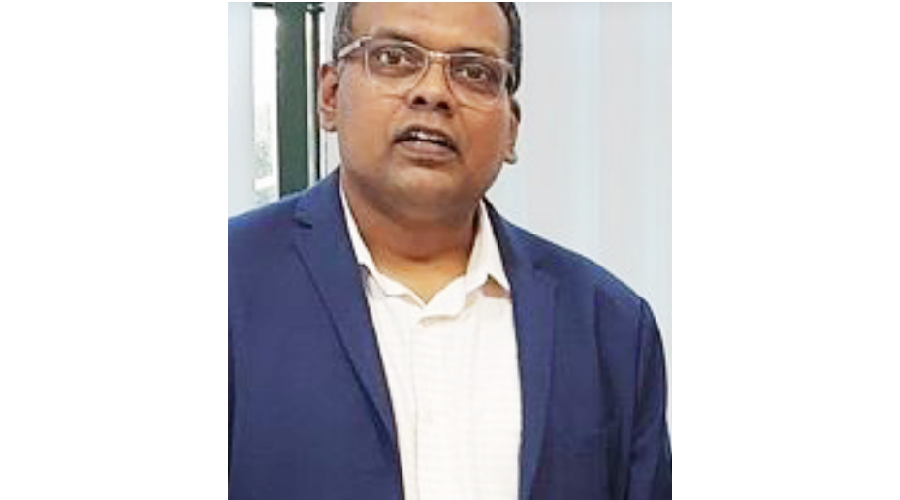Solomon Island is expected to attend the upcoming India-Pacific Islands Cooperation (FIPIC) summit in Port Moresby, Papua New Guinea (PNG) in May.
This came after the Indian High Commissioner to Solomon Islands His Excellency (H.E) Shri Inbasekar based in Port Moresby briefed the country’s envoy based in Port Moresby on Tuesday.
Following the meeting between Indian High Commissioner Inbasekar and Solomon Islands High Commissioner to PNG His Excellency (H.E) William Soaki, an invitation will be issued to the Solomon Islands Government (SIG) to be part of this important summit set for May.
In a statement H.E Soaki said, “had a good meeting with the Port Moresby based Indian High Commissioner to Solomon Islands, H.E Shri Inbasekar this afternoon (Tuesday).”
He said, their discussion focused on the upcoming big event.
“Discussed issues regarding the upcoming Forum for India-Pacific Islands Cooperation (FIPIC) summit which will be held in Port Moresby on 22 May 2023,” he said.
H.E Soaki said, formal announcement and other details will be made by the PNG government in the coming weeks.
“Invitation will be send to Solomon Islands Prime Minister and other Heads of Government of Pacific island countries,” he said.
Solomon Islands ties with India continues to grow over the past year.
And this is expected to be further strengthen with the establishment of new Solomon Islands High Commission Office in New Delhi, India soon.
Both envoys have met last month to discuss the setting up of the new embassy in New Delhi.
Officials from both governments are currently working on securing an office space and accommodation for the country’s representative to be based in New Delhi.
Prime Minister Manasseh Sogavare is expected to open the new office.
Having closer relations with India should provide the incentive for the Solomon Islands Government and the MHMS/NRH, to seek medical transfers of sick patients to hospitals in India rather than trying to arrange such medical transfers to Australia where costs are very high.
The Indian healthcare sector presents a persuasive case to be the vanguard for deeper economic engagement between India and the Solomon Islands.
India’s growing attractiveness as a hub for medical tourism is reflected in the fact that the numbers of medical tourists are rising every year as the rare combination of advanced facilities, skilled doctors, and low cost of treatment becomes recognised, and indeed celebrated, by patients across the world. Domestic and international accreditation has played its part in inspiring confidence among medical tourists in the quality of Indian healthcare. The total number of such visitors in 2017 was 495,056 (provisional) compared to 233,918 in 2015 and 427,014 in 2016 respectively. Bangladesh and Afghanistan dominate the number of medical tourists to India.
The Niti Aayog, India’s official think-tank, has identified medical value travel (MVT) as a major source of foreign exchange earnings. India currently has around 18% of the global medical tourism market. MVT was pegged at $3 billion in 2015 and is estimated to grow at a CAGR of 15%, according to a report by FICCI and IMS Health, a health industry information firm. It has been estimated that by 2020, India’s medical tourism industry could be worth $9 billion, and account for 20% of the global market share. The report pointed out that in curative care, India was the preferred destination for cardiology, orthopaedics, transplants, and ophthalmology. India also enjoys high credibility in wellness, preventive, and alternative medicine.
Medical tourism has the potential to create substantial spillover benefits, or so called positive externalities, because of the compelling humanitarian angle associated with it. Driven by a strong people-to-people connect, the role of healthcare as an entry point for potentially transforming bilateral relations cannot be exaggerated.
Comment.
If promoted systematically, medical assistance to the Solomon Islands, as opposed to tourism, can provide a virtuous platform for exploring greater economic engagement between the two countries. The humanitarian aspect embodied in healthcare produces helpful political incentives that can shape a good narrative to transform overall bilateral relations permanently and for the better.
Yours sincerely
Frank Short



